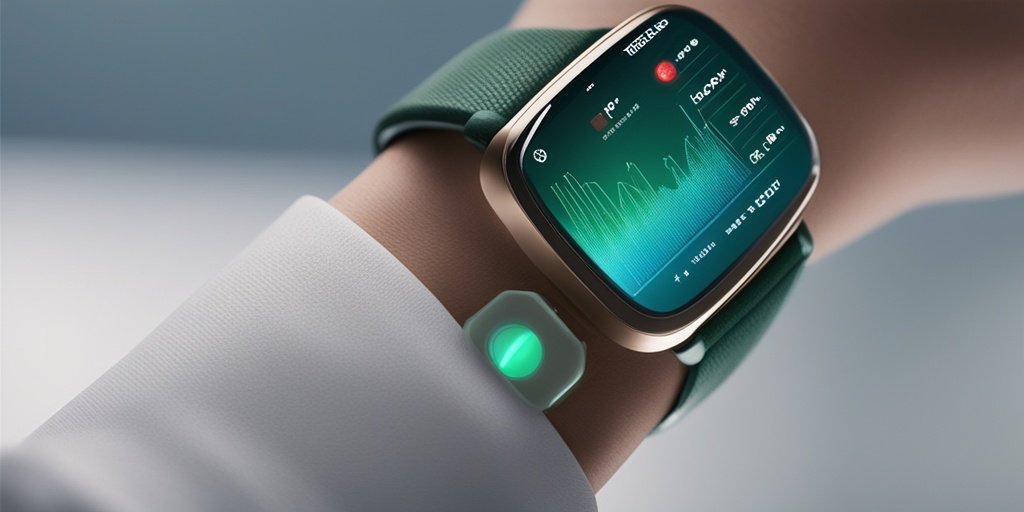⚡ Quick Summary
This study introduces a groundbreaking cardiovascular disease prediction model utilizing AI-driven IoT technology. The proposed SF-IIAdaboost algorithm achieved impressive metrics, including 95.37% accuracy and 96.31% specificity, showcasing its potential for early disease intervention.
🔍 Key Details
- 📊 Dataset: Collected from various IoT medical sensors and wearable devices
- 🧩 Features used: Clinical data processed through Z-score normalization and Kernel-PCA
- ⚙️ Technology: SF-IIAdaboost algorithm implemented using Python
- 🏆 Performance: Accuracy: 95.37%, Precision: 93.51%, Sensitivity: 94.3%, Specificity: 96.31%
🔑 Key Takeaways
- 📊 AI and IoT integration can significantly enhance cardiovascular disease prediction.
- 💡 The SF-IIAdaboost algorithm outperformed traditional methods in predictive accuracy.
- 👩🔬 Data preprocessing using Z-score normalization is crucial for optimizing model performance.
- 🏥 The model’s high specificity indicates its effectiveness in correctly identifying healthy individuals.
- 🌍 Future developments may include edge computing to reduce latency in data processing.
- 🔍 Comparative analyses confirm the superiority of the proposed model over conventional approaches.
- 📈 The study highlights the importance of real-time data collection for timely medical interventions.

📚 Background
Cardiovascular diseases (CVDs) remain a leading cause of morbidity and mortality worldwide. Traditional methods of monitoring and predicting these conditions often lack the precision and timeliness required for effective intervention. The advent of Internet of Things (IoT) technologies, combined with artificial intelligence (AI), presents a promising solution to enhance patient care and outcomes.
🗒️ Study
This research aimed to develop an efficient prediction model for cardiovascular diseases by leveraging data from IoT devices. The study utilized a novel Shuffled Frog leaping-tuned Iterative Improved Adaptive Boosting (SF-IIAdaboost) algorithm, which was trained on a comprehensive dataset collected from various medical sensors and wearable devices. The data underwent rigorous preprocessing to ensure its quality and relevance.
📈 Results
The proposed SF-IIAdaboost model demonstrated remarkable performance metrics, achieving 95.37% accuracy, 93.51% precision, 94.3% sensitivity, 96.31% specificity, and 95.72% F-measure. These results indicate a significant improvement over traditional predictive methods, underscoring the model’s potential for real-world applications in healthcare.
🌍 Impact and Implications
The findings of this study could revolutionize the way cardiovascular diseases are predicted and managed. By integrating AI with IoT technologies, healthcare providers can achieve more accurate and timely interventions, ultimately improving patient outcomes. The anticipated shift towards edge computing could further enhance the efficiency of these systems, allowing for immediate data processing and decision-making.
🔮 Conclusion
This research highlights the transformative potential of AI-driven IoT technologies in predicting cardiovascular diseases. The impressive performance of the SF-IIAdaboost model paves the way for future innovations in healthcare, emphasizing the need for continued exploration in this field. As we move forward, the integration of these technologies promises to enhance the quality of care and patient safety significantly.
💬 Your comments
What are your thoughts on the integration of AI and IoT in healthcare? We would love to hear your insights! 💬 Leave your comments below or connect with us on social media:
An efficient cardiovascular disease prediction model through AI-driven IoT technology.
Abstract
Conditions affecting the circulatory system and blood vessels are referred to as cardiovascular diseases that include strokes and heart attacks. Internet of Things (IoT) technologies monitor health metrics, identify irregularities and enable remote patient care, resulting in earlier intervention and more individualized therapy. This research aims to establish an efficient cardiovascular disease prediction model through Artificial intelligence (AI)-driven IoT technology. We propose a novel Shuffled Frog leaping-tuned Iterative Improved Adaptive Boosting (SF-IIAdaboost) algorithm for predicting cardiovascular disease with the implementation of IoT device data. IoT medical sensors and wearable devices will collect the patient’s clinical data in our proposed framework. Z-score normalization is used to preprocess the gathered data and optimize its quality. Kernel principal component analysis (Kernel-PCA) extracts the relevant features from the processed data. We obtained a dataset that contains various health data gathered from numerous sensing devices to train our recommended model. Our proposed methodology is implemented using Python software. During the evaluation phase, we assess the effectiveness of our model across different parameters. We conduct comparative analyses against conventional methods to ascertain the superiority of our approach. Experimental findings demonstrate the superior performance of our recognition method over traditional approaches. The proposed SF-IIAdaboost algorithm, integrated with IoT device data, presents a promising avenue for predicting cardiovascular disease. The SF-IIAdaboost model demonstrated notable enhancements, attaining 95.37 % accuracy, 93.51 % precision, 94.3 % sensitivity, 96.31 % specificity, and 95.72 % F-measure. Future developments are predicted to involve computing on the edge, where immediate evaluations can be performed in the edge layer to avoid the basic constraints of the clouds, such as high latency, utilization of bandwidth and performing the growth of IoT data. Edge computing can revolutionize the healthcare industry’s efficacy by enabling providers to make flexible decisions, operate quickly, and accurately anticipate diseases. It can improve the average level of service standards.
Author: [‘Marengo A’, ‘Pagano A’, ‘Santamato V’]
Journal: Comput Biol Med
Citation: Marengo A, et al. An efficient cardiovascular disease prediction model through AI-driven IoT technology. An efficient cardiovascular disease prediction model through AI-driven IoT technology. 2024; 183:109330. doi: 10.1016/j.compbiomed.2024.109330